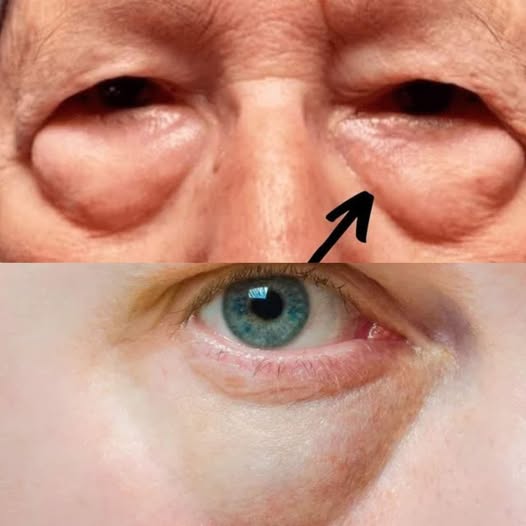ADVERTISEMENT
Changes in hormones, especially those related to pregnancy, menopause, or thyroid issues, can contribute to under-eye bags and dark circles. Hormonal shifts can cause:
Water retention: Leading to puffiness in the under-eye area.
Thinner skin: Some hormonal changes can make the skin under the eyes thinner, allowing blood vessels to be more visible and create a dark appearance.
6. Genetics: Can't Always Be Helped
Sometimes, dark circles are hereditary. If your parents or grandparents had prominent under-eye bags or dark circles, it's possible you might be genetically predisposed. Certain inherited conditions, like fatty deposits under the skin or naturally thinner skin, can make you more prone to dark circles.
7. Smoking and Alcohol Consumption: Skin Destruction
Smoking and drinking alcohol can have a profound impact on your skin’s health and the appearance of your under-eye area:
Smoking: This leads to poor blood circulation, dehydration, and collagen breakdown, making the skin under the eyes thinner and more prone to puffiness and discoloration.
Alcohol: Excessive alcohol consumption leads to dehydration, dilated blood vessels, and poor sleep, all of which can worsen under-eye bags and dark circles.
8. Medical Conditions: A Serious Warning Sign
Sometimes under-eye bags and dark circles could be a sign of more serious health issues, including:
Kidney disease: Kidney issues can cause fluid retention and puffiness, especially around the eyes.
Thyroid disorders: Both hypothyroidism and hyperthyroidism can cause dark circles and puffiness due to hormonal imbalances.
Anemia: As mentioned earlier, iron deficiency anemia can result in pale skin and dark circles around the eyes.
Heart problems: In rare cases, persistent puffiness under the eyes could be a sign of heart issues or problems with fluid circulation.
What You Can Do About It:
ADVERTISEMENT
